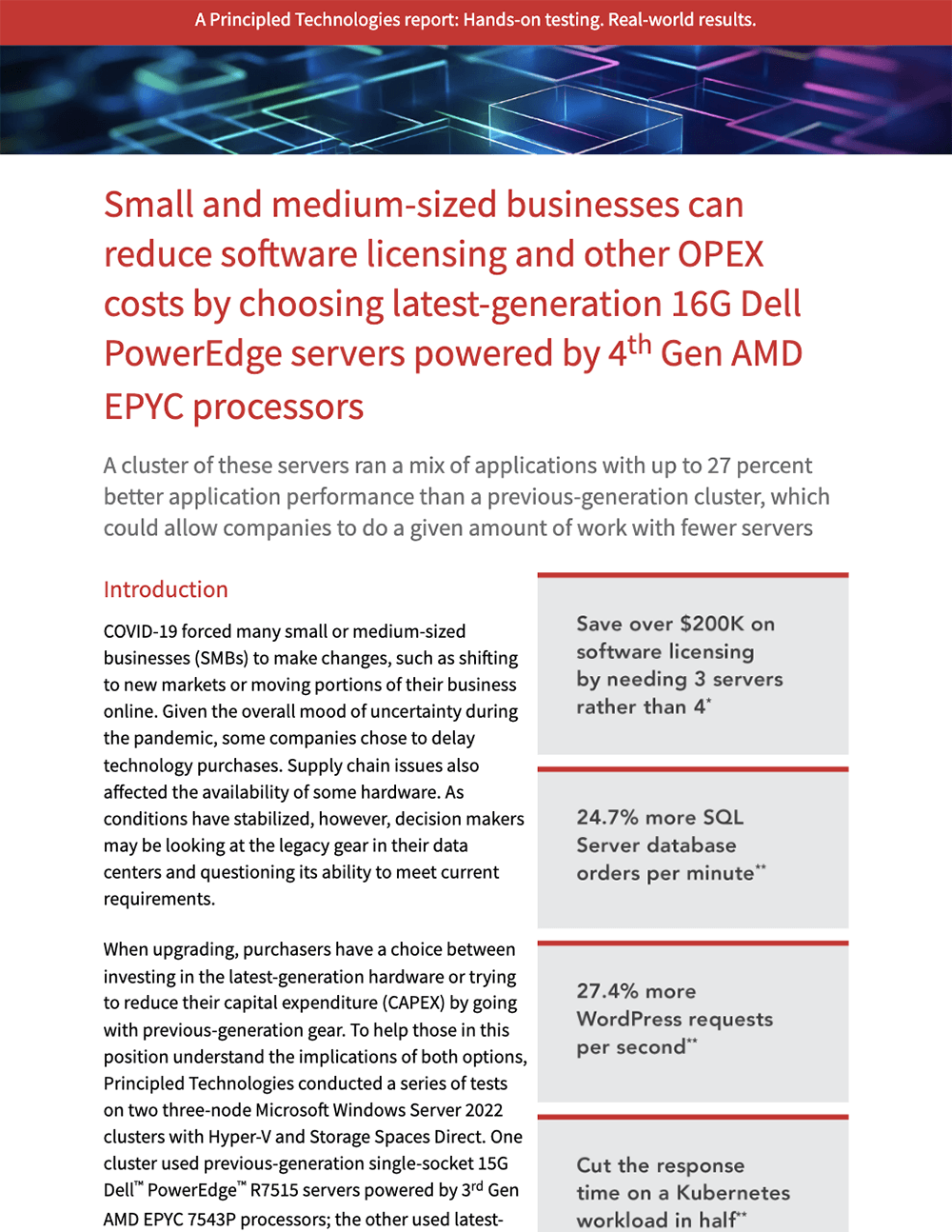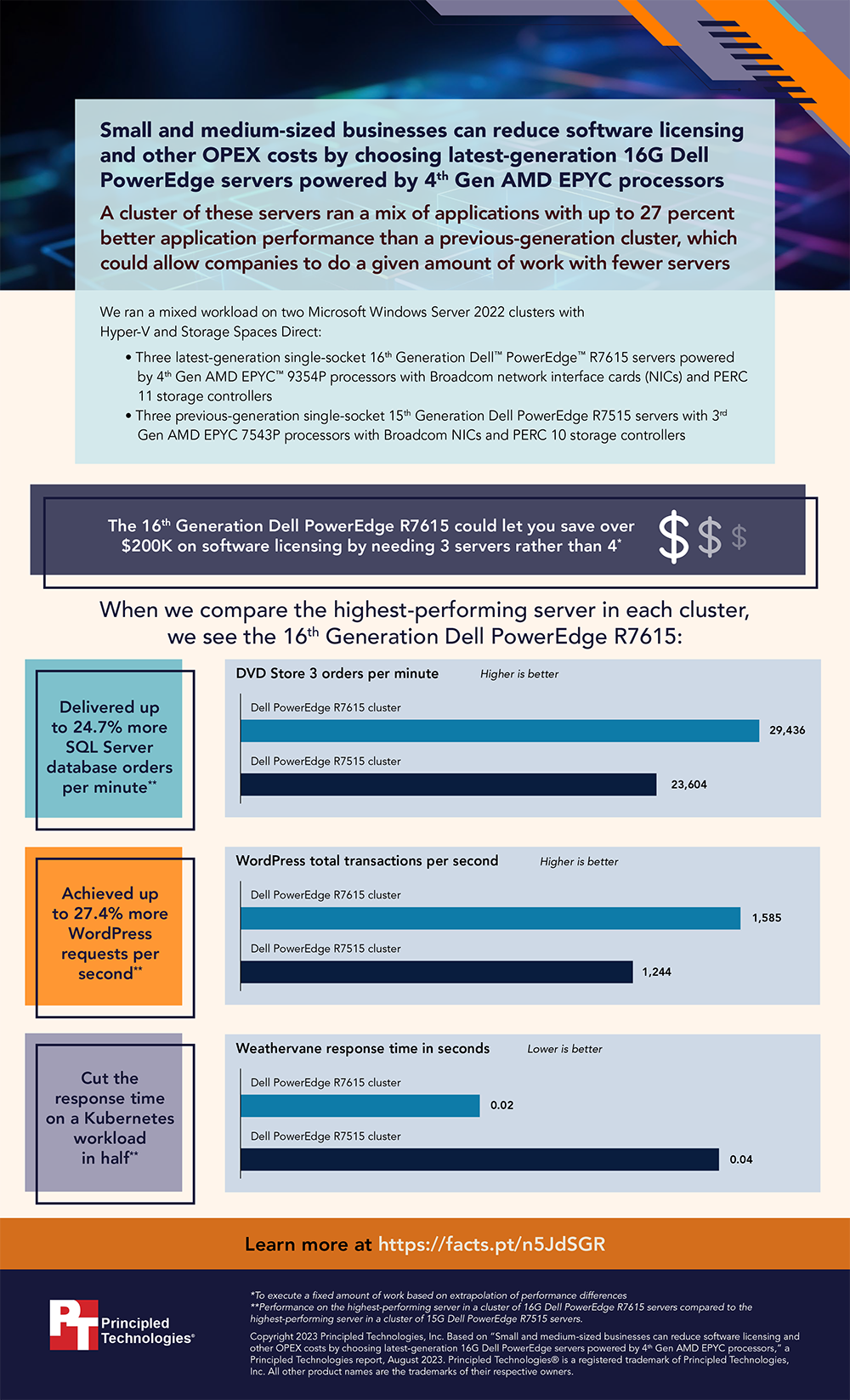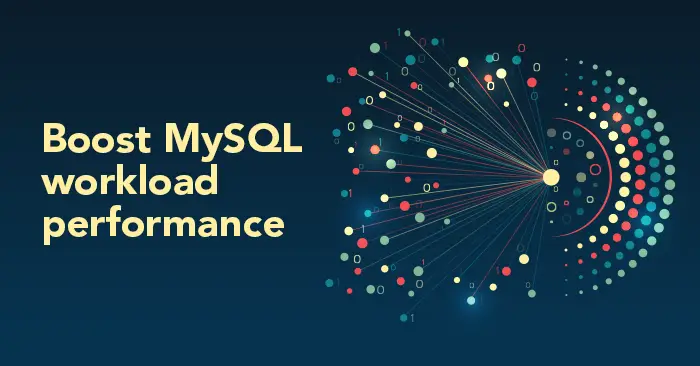
For small and medium-sized businesses (SMBs) considering server upgrades, purchasing decisions can often involve perceived trade-offs. Do you invest more money in latest-gen gear—with expectations of better performance—or do you try to save money with previous-gen gear and risk being underprepared for future growth? The choice is not always simple. For many common SMB needs, latest-gen servers can deliver both better performance and lower overall costs in the long run.
To compare the possible outcomes of latest-gen and previous-gen server upgrades in an SMB context, we conducted a series of tests on two three-node Microsoft Windows Server 2022 clusters. One cluster used latest-gen 16G Dell PowerEdge R7615 servers with 4th Gen AMD EPYC 9354P processors: the other used previous-gen 15G Dell PowerEdge R7515 servers with 3rd Gen AMD EPYC 7543P processors. We measured each cluster’s ability to simultaneously handle a database workload, a container-based application, and a web app. On all three workloads, the new cluster demonstrated significant performance advantages over the previous-gen cluster, with database performance improvements of up to 27 percent and latency reduction of up to 50 percent. Those differences are large enough that a business in that scenario would need fewer new servers to do a given amount of work, which in turn would mean that the cost savings from reduced software licensing alone could more than offset the purchase price of the new servers. For many SMB workflows, the choice to upgrade to a latest-gen Dell solution can benefit both performance and the bottom line.
To learn more about our server upgrade comparison tests, check out the report and infographic below.
Principled Technologies is more than a name: Those two words power all we do. Our principles are our north star, determining the way we work with you, treat our staff, and run our business. And in every area, technologies drive our business, inspire us to innovate, and remind us that new approaches are always possible.







